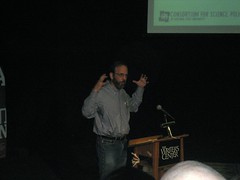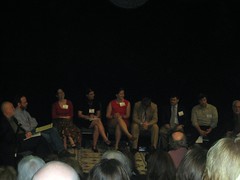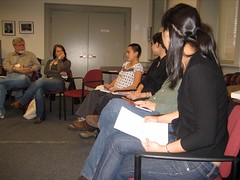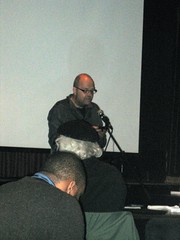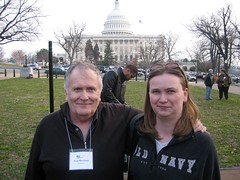First, since I take a ton of photos when I leave on trips, check out the slide show below:
Second, let’s talk about the panel I saw at BEA and then let’s talk Book Blogger Convention. I had grand plans to sit down and take in the panels and speakers, but unfortunately, I only attended one panel — Copyright in Motion.
Christopher Kenneally, leader of Copyright Clearance Center, introduced himself and his ties to a copyright service firm before showing a slide show on copyright law and how many in Corporate America and elsewhere fail to understand the protections that copyrights provide. Copyrights must be managed on a daily basis through every action, and copyrights are not global protections.
Recommendations entail getting permission anytime there is doubt about a copyright protection. Anytime someone uses information from a magazine or other subscription service, they should check the licenses attached to those subscriptions and how material can be used. Each subscription has different rights attached to it. Moreover, translation rights and transforming works from one form — say a novel — into another form — like a screenplay — involve an additional set of permissions.
There is a movement in place to create a global copyright through the Berne Convention, but there also are organizations working on coordinating copyrights on a larger scale.
Unfortunately, this is the only panel I attended during BEA. If you want to hear more about my misadventures in NYC with my partners in crime, visit Diary of an Eccentric.
I took a little video during Book Blogger Con of keynote speaker, Maureen Johnson, so check that out:
There were even funnier parts to this speech, but I ran out of room on the memory card; don’t you hate when you are so exhausted that you forget half of what you wanted to bring along to the conference?!
One of my favorite parts of the speech was when she discussed the penchant for crime shows on television to demonize the Internet and its capabilities; Johnson said they often refer to the “Tweet of Doom” and other horrible actions stemming from the Internet that will come to get us all. Another of my favorite parts of the speech were when Johnson talked about her Catholic high school and the painting or mural image at the entrance of the school that depicted nuns being shoved into a mass grave by Nazis.
I’m not going to talk about the other panelists because I think Wendy at Caribousmom did an awesome job recapping the convention. There is no way for me to top that one. Also, if you are interested in the swag from BBC, please visit Ticket to Anywhere; she did a great job going through the entire bag.
Lastly, I want to say that it was great to meet a number of the book bloggers I talk to online in person and to meet Caitlin Summie from Unbridled Books, Paul Samuelson from Sourcebooks, Allie Greenwald from Inkwell Management. It was also great to see Hachette Book Group‘s Miriam Parker and Online Publicist Lisa Roe again.
I’ll be resuming normal book reviews and content next week. Feel free to share your thoughts and experiences with me about your week and convention fun.
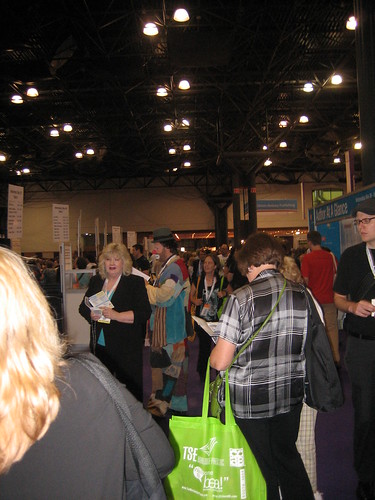 Author signings at
Author signings at 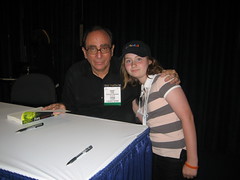 I do want to share with you some photos of author signings for non-ticketed authors. The Girl from
I do want to share with you some photos of author signings for non-ticketed authors. The Girl from 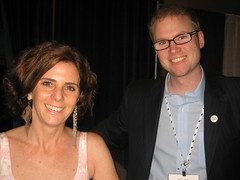 What authors were you anxious to see? Tell me about your author signing experiences.
What authors were you anxious to see? Tell me about your author signing experiences.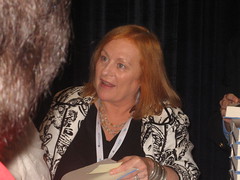
 Entering into the
Entering into the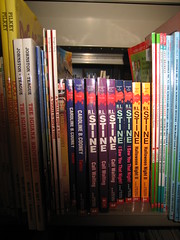 We were taken on a tour of the building, the offices, and the archives in the basement.
We were taken on a tour of the building, the offices, and the archives in the basement. 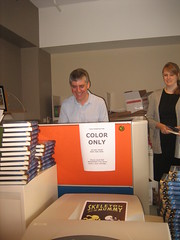
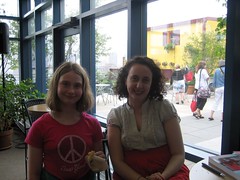
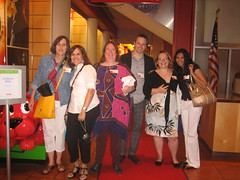
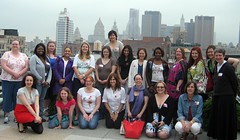
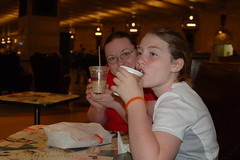 Everyone will be talking about
Everyone will be talking about 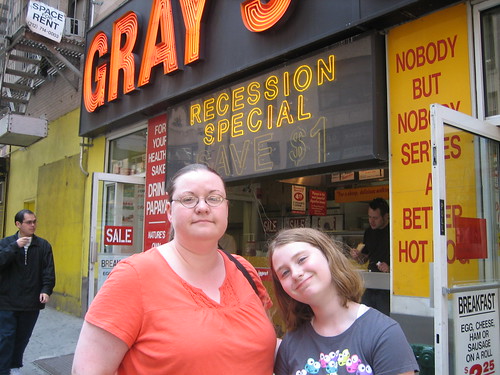

 Junior’s
Junior’s
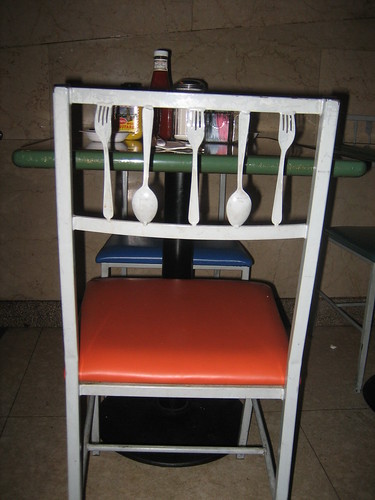
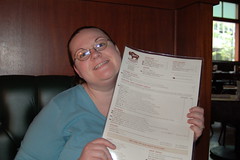 Ted’s Montana Grill was one of the best places we ate in NYC, and it is the place I ventured farther from my norm — I had a bison burger. I was so hungry that I forgot to take a photo of my burger and any of the other meals, but I did take a photo of the yummy homemade pickles and the dessert.
Ted’s Montana Grill was one of the best places we ate in NYC, and it is the place I ventured farther from my norm — I had a bison burger. I was so hungry that I forgot to take a photo of my burger and any of the other meals, but I did take a photo of the yummy homemade pickles and the dessert.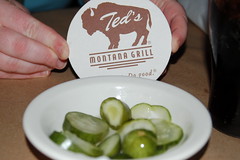 Another great thing about this restaurant is the care taken to remain earth-friendly from the recycled paper products to the differing flush control for liquid versus solid wastes.
Another great thing about this restaurant is the care taken to remain earth-friendly from the recycled paper products to the differing flush control for liquid versus solid wastes.
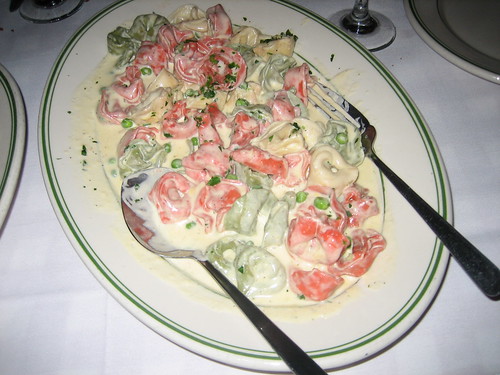


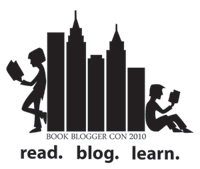 While I’m away, my mom, Pat, will have taken over the blog for the week beginning on Monday, May 24, to regale you with her reviews. Please stop by and check them out, especially if you are looking for a new suspense or crime thriller.
While I’m away, my mom, Pat, will have taken over the blog for the week beginning on Monday, May 24, to regale you with her reviews. Please stop by and check them out, especially if you are looking for a new suspense or crime thriller.